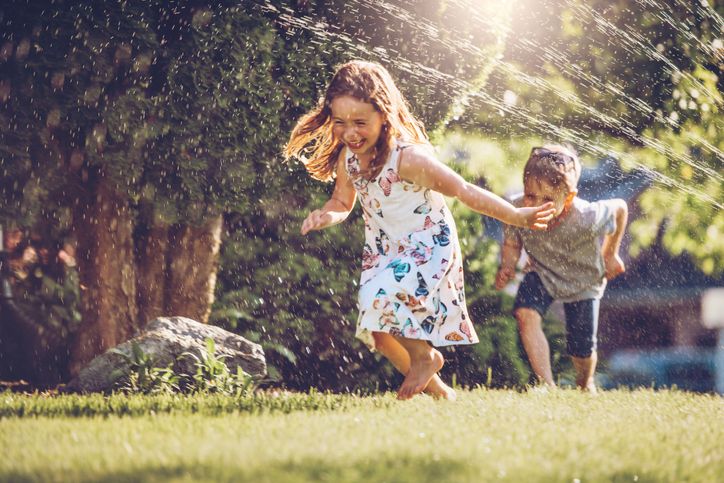Primary Care
Want to learn more about this at Kettering Health?
The 4th of July becomes the annual epitome of summer celebrations—hosting barbeques, swimming get-togethers, building bonfires, waving sparklers, and enjoying fireworks.
And after last year’s pandemic-shaped summer, everyone is more than ready to gather and celebrate together.
Amid the eagerness to fire up grills and lounge by pools, remember that July 4th can take unwanted turns. Celebrate this holiday where it should be celebrated—with friends and family, not with a visit to the ER.
Firework safety certainly tops the list of ways to stay safe. But before the sun sets and the night is illuminated with reds, whites, and blues, there are a few other important ways to celebrate safely this July 4th.
Stay hydrated, stay happy
Whether you’re hiking or basking in summer’s shine, keep your body hydrated. Dehydration can sneak up if you’re not careful.
“Dehydration and heat-related illnesses are a big problem in the summertime,” said Dr. Michael Good, medical director of Kettering Health Franklin Emergency Center.
Drink lots of water regardless of your activity level. And ensure children take plenty of water breaks as they play.
Along with water, Dr. Good suggests sports drinks to put electrolytes (essential minerals like sodium, calcium, and potassium) back into your body.
Symptoms of dehydration include extreme thirst, dizziness, dark-colored urine, and fatigue. If you show signs of dehydration, get indoors or into some shade and drink plenty of water. Severe cases of dehydration need immediate medical treatment.
Enjoy the sun, evade the heat
Along with dehydration, heat exhaustion can squelch a July 4th shindig. And it typically follows dehydration if you’re not proactive.
“Dehydration may progress into heat exhaustion, and heat exhaustion into heat stroke,” cautions Dr. Good.
To avoid heat exhaustion, wear loose, brightly colored clothing; stay hydrated; and take breaks indoors or in the shade.
Heat exhaustion shares many symptoms with dehydration. Other symptoms include excessive sweating; a weak, rapid pulse; and muscle cramps.
There’s no such thing as “muscling through” heat exhaustion. If someone shows symptoms, get them indoors to lie down and help them begin slowly drinking sports drinks or water. For severe cases, wrap them in towels soaked in cool water or get them into a cool shower or bath.
Protect your skin, prevent greater problems
July 4th get-togethers often mean lots of sun—and lots of bugs. And both pose problems for your skin and health.
To avoid sunburn, the things your mom taught you to do are still true: wear lightly colored clothing, take breaks, and wear lots of sunscreen. Dr. Good recommends using sunscreen with an SPF of 30 or higher.
And be sure to double-check to see if any medicines you’re taking make you more susceptible to sunburns.
“Some patients are on medications that make you more susceptible to sun damage, such as some antibiotic, anti-inflammatory, or antihistamine drugs,” said Dr. Good.
And before you start your hike or fan out the blanket for a picnic, make sure you’ve protected yourself against those pesky insects.
According to a report from the Centers of Disease Control and Protection, cases of mosquito- and tick-borne diseases have increased. Use repellents containing 20 to 50% DEET on exposed skin, and make sure you check your children (and pups) for ticks after coming inside.
If you find a tick from you or a child, safely remove it, and contact your doctor. Detecting bites early can help prevent unwanted diseases.









